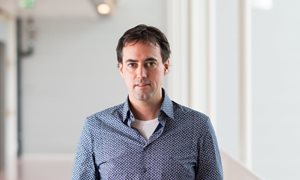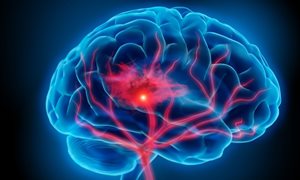 Brain damage following a stroke, brain tumor or accident often results in walking impairments. The huge variation in problems and treatment options makes this a very difficult problem to treat. Researchers and doctors working in the Loop Expertise Centrum (Centre of Excellence for Walking) run by Sint Maartenskliniek and Radboud university medical center have developed a method for treating these walking impairments. Their article will be published in the 26 February edition of JAMA Neurology.
Brain damage following a stroke, brain tumor or accident often results in walking impairments. The huge variation in problems and treatment options makes this a very difficult problem to treat. Researchers and doctors working in the Loop Expertise Centrum (Centre of Excellence for Walking) run by Sint Maartenskliniek and Radboud university medical center have developed a method for treating these walking impairments. Their article will be published in the 26 February edition of JAMA Neurology.
Three categories
Junior rehabilitation doctor and researcher Jorik Nonnekes and colleagues from Radboud university medical center and Sint Maartenskliniek have now developed an algorithm for treating walking impairments resulting from brain damage. They have distinguished three main categories of causes: a deviant foot angle, calf muscle weakness and over-active thigh muscles. Based on research literature and their own experience in treating walking impairments, the doctors and researchers have defined an optimum approach to treating these impairments. Surprisingly, surgical interventions play a prominent role.
Orthopedic options
Jorik Nonnekes: “It’s difficult to find the correct treatment for patients with walking impairments resulting from brain damage. Long periods of physiotherapy and orthopedic shoes are often the first preferred option, with surgical interventions, such as lengthening a tendon or fixating a joint in the foot, coming much later. We have learned from experience that it can be better to look at the surgical options sooner rather than later.”
This was the case for Lenny van Eck (37). After a stroke in 2012, she continued to have problems walking. She was initially prescribed physiotherapy and orthopedic shoes. But last year, she had an operation to correct the angle of her foot: “I’m so pleased I went ahead with this. My toes used to point downwards, but now they’re straight. After five years of special shoes, I can now wear my own shoes again. Walking did was painful before the operation, but not anymore. I can walk much further now too. I should have done this ages ago.”
Food for thought
Many treatment centers do not consider surgical options because they lack the facilities. So over the past few years, the Loop Expertise Centrum of Radboud university medical center and Sint Maartenskliniek have been encouraging orthopedic surgeons and rehabilitation doctors to work together to treat walking impairments. According to the researchers, a systematic approach to walking problems is the first step towards developing solid guidelines. Follow-up research is needed to compare the various effects of the different treatments. Nonnekes: “We have already received enthusiastic reactions from the reviewers, indicating that our publication gives food for thought and a reason to evaluate the current approach to this problem in the United States.”
-
Want to know more about these subjects? Click on the buttons below for more news.
Related news items

Erno Hermans appointed professor of Cognitive Affective Neuroscience
13 April 2022Hermans unravels the effects of stress on the brain, and uses that knowledge to develop preventive training programs that increase resilience.
go to page
Aerobe exercise has a positive effect on brain function in Parkinson's disease patients
18 January 2022 Radboudumc researchers have shown that the brain function of patients with Parkinson's disease improved with regular exercise, which seems to strengthen the connections between different brain areas, while inhibiting brain shrinkage. go to page
Tiny blood vessels, big problems Radboudumc receives grant for international collaboration
3 November 2021 The Radboudumc, together with the University of Cambridge, receives a grant of €1.8M from three collaborating cardiac foundations for international research into the small blood vessels in the brain. This study will be led by Neurologist Frank-Erik de Leeuw and internist Niels Riksen. go to page
Treatment of brain diseases at risk if neuroscientists can no longer conduct their research
5 August 2021 In order to treat brain diseases such as depression, Alzheimer's or ADHD, more research into the brain is needed. go to page
Standing balance capacity is easily overestimated in well-recovered stroke survivors
20 February 2019 In Neurorehabilitation and Neural Repair Jolanda Roelofs and Sander Geurts showed that well-recovered persons in the chronic phase after stroke with clinically no (or only very limited) motor impairment of the affected leg may still show substantial problems with standing balance control. go to page
